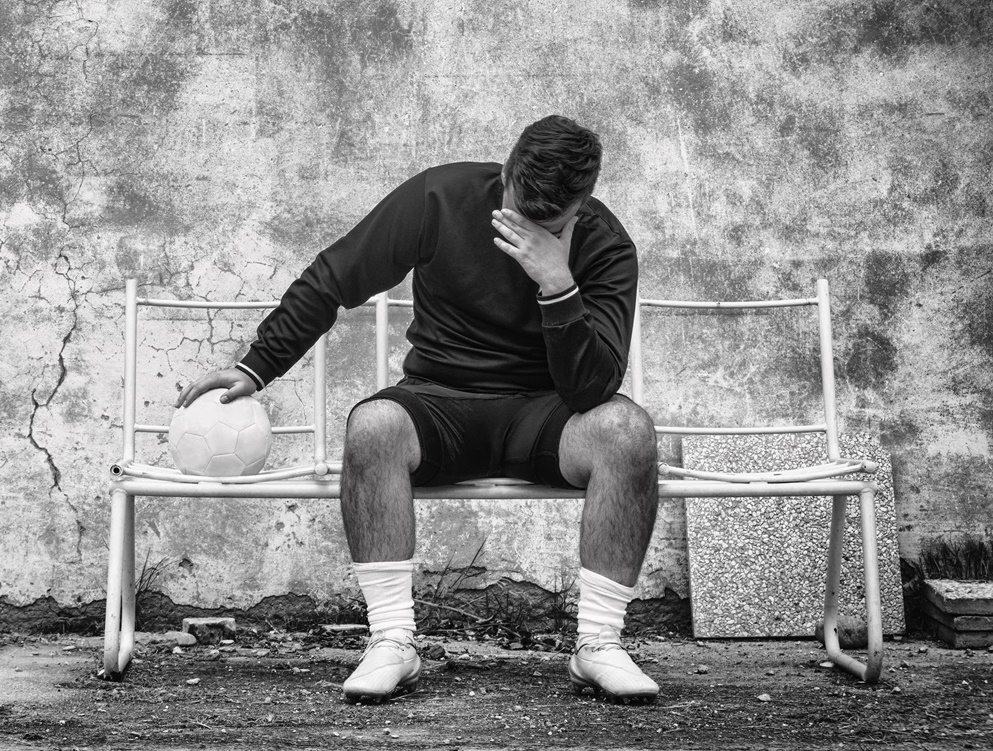From time to time the discussion arises that there is a need to deal with queer prejudice within The national Olympic and Sports Association of Iceland, ÍSÍ, but still little has been come out of it. Jóhanna Ýr Jónsdóttir and Roald Viðar Eyvindsson spoke to athletes who say they’re getting tired of ÍSÍ’s inadequacy to tackle the matter and want the board to take action.
Kári Garðarsson, head coach of Grótta’s women’s team in handball, urges ÍSÍ to start a dialogue on queer issues. He says that as long as nothing is done, instances of queer phobia will keep coming up within the sports movement.
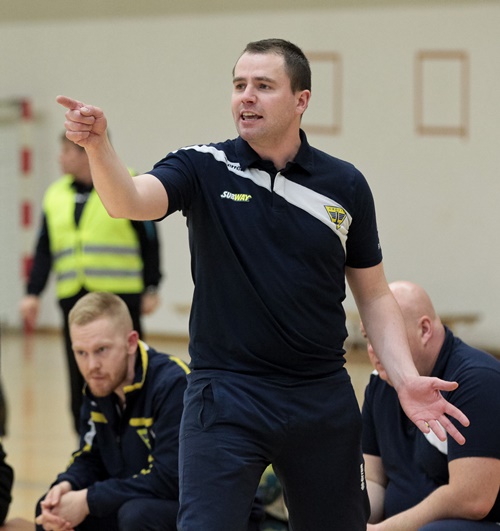
“I don’t want to go into details, but unfortunately there have been instances where supporters of other teams have thrown inappropriate remarks at players out in the field. And yes, sometimes team players have made thoughtless, insensitive remarks,” says Kári.
“Which is hurtful, not only for openly gay athletes but also for athletes who are still in the closet. Prejudiced remarks like that can be harmful in more ways than one. They can, for example, prevent closeted players from coming out.”
So do you think that there are closeted athletes in Iceland? “Yes, of course. I mean just look at the statistics and you’ll see that there are really few openly gay athletes, especial gay male athletes, in the world. Because coming out in sports is tough, especially for queer men. Abroad, none of the guys in top-level soccer have come out yet. Top-level soccer players don’t come out, at least not while maintaining a career.”
Kári himself didn’t come out as a gay man until he was 26 years old. He admits he was afraid to and says because of that he can just imagine what a tough time closeted athletes must be going through. “Yes I presume it’s just as difficult for them, as it was for me. Before I came out I had already painted a very dramatic scenario; that I would have to quit anything and everything when it came to sports.
“ÍSÍ really needs to put it’s foot down … I want ÍSÍ to start addressing queer issues. We need to open up a dialogue on the matter.”
But as it turned out, the people within the sports movement were okay with it. Just like most others around me. So the reaction I got was good. And I was so relieved that I didn’t have to pretend anymore, that I could just be myself. It’s so bad when people have to hide in the closet. It’s bad for people’s mental health when they can’t be them selves. That’s one of the reasons why I want ÍSÍ to start addressing queer issues. We need to open up a dialogue on the matter.”
Kári says that coaches play a very important role in that regards. “That’s something I know from being a coach myself. You see, the kids really look up to the coaches. So the strongest move would be to focus on the coaches and their assistants. For example, help them learn what the appropriate response is, if a player tells them in confidence that she or he is queer. So that the player gets a positive reaction.”
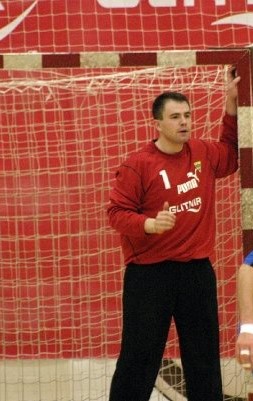
Kári believes that coaches and those in the inner most circle of the sports movement would benefit from a general education on prejudice and how to deal with it. He points out that racism is for example being discussed within the movement since more incidents of racism are coming up. Incidents which can most likely be linked to the fact that more and more athletes of other nationalities are coming to play in Iceland. And these incidents, he says, are being handled, partly thanks to the discussion that’s already taking place.
“Last summer a soccer player had a racist remark thrown at him from a member of the opposite team and it was firmly dealt with,” he mentions, referring to an incident where a player got fired for calling a goal keeper from an opposite team an ape, and adds that perhaps it also helped that the media got wind of it.
“I think it would do good if the sports movement approached queer issues in the same way as racism, because something tells me that we’ll be facing similar problems when more players start coming out,” he says. “But as it is, queer bullying hasn’t being brought up within the sports movement as far as I know, at least not specifically, just bullying in general.”
Kári says that in all fairness though, ÍSÍ shouldn’t be solely responsible for educating the coaches and their assistants on queer issues, seeing that it’s a time consuming and expensive affair. “We, the athletes who’ve already come out, could help. And maybe Samtökin ’78 (the national queer organization) could get involved,” he points out, but underlines that he still thinks ÍSÍ needs to take a firmer stance in the matter. “ÍSÍ really needs to put its foot down and start a dialogue on queer issues.”
We have to educate people
Handball-player Daníel Örn Einarsson, who is a right-wing for sports club Víkingur says that there’s all kinds of ignorance going on about queer issues within the Icelandic sports movement. Ignorance that he’s experienced first hand.
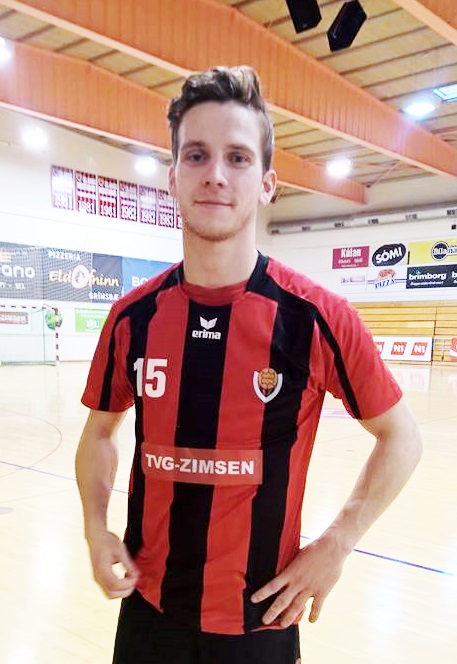
“Oh, yeah there’s prejudice against queers in sports in Iceland and just like racism in sports, it’s hidden. People have for example come up to me and said: “You’re my friend but I hate gay-looking dudes”. Or: “You’re not a fag like them, because you’re not gay-looking”. It’s the same thing like when people say: “I’m not a racist, but….,” says Daníel.
“So people may think they’re not prejudiced, while they really are. They have this predisposed notion on how a queer person “is”, even though they don’t even know any queers. Similar to people who haven’t been around many black people but still make all kind of presumptions about them.”
Daníel is the first – and so far – the only handball-player in the men’s top division in Iceland to publicly announce that he’s gay and says that the support of his team mates really helped when he came out six years ago. “Yes, they talked to each other and to our coaches and to those in charge of the team and made it clear that this wasn’t something to be made a big deal out of. That this wasn’t an issue at all.”
“Queer issues should be handled within the sports movement just like other minority-related issues … it’s tiresome that ÍSÍ isn’t dealing with the matter.”
None the less Daníel felt prejudice two years after that, especially from older people within the sports movement; from some coaches and those in charge. “They were afraid how the team might react when I came out and just didn’t know how to approach me. Simply because of their own insecurities. Because it was totally new to them.
And then there was also a team that didn’t want me as a player, mostly because the coaches and the management didn’t know how to tackle the fact that I’m gay.”
Daníel says it just goes to show that younger generations are way more open to queer issues than the older ones. And that’s why he thinks that the coaches, especially the older ones, need to be educated on how to deal with queer issues, so they can handle them with confidence.
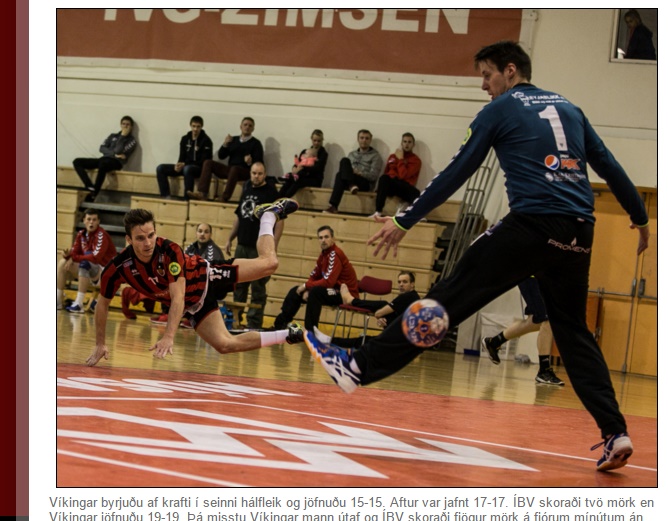
“That is not to say that the younger ones don’t need education as well, although they are less prejudice than the older ones. Some of them are 18-19 years old and coaching 14-15 year olds. They need to be educated on how to deal with queer issues, so they can handle them with confidence when or if some kind of incident occurs.
Of course queer education won’t affect some of them. None the less you can still teach them to adjust.
And this might sound a bit weird, but you can teach them to talk to the kids and tell them that being queer isn’t a big deal, even though that’s not something they necessarily believe themselves.
However I think many of them actually believe that they’re already dealing with these things appropriately, when in fact they’re not. There are many out there who feel that they know plenty, but they simply don’t.
They’re stubborn and think that what they’re doing is enough. And when you mention better education to them they just go: “Oh no, not that whining again.”
These are the same people who tend to say: “Oh, are the feminists complaining again.” Or: “Are the queers whining, yet again.” And then when something negative actually does happen, they pretend not to notice.”
Therefore Daníel thinks that ÍSÍ needs to address the matter. “Discrimination against queers shouldn’t be accepted. More should be done to educate people on queer issues.
Queer matters should be handled within the sports movement just like other minority-related issues. And frankly, I think it’s tiresome that ÍSÍ isn’t dealing with the matter officially.”
Indifference will cost us prominent athletes
Twenty year old student Jón Ágúst Þórunnarson played handball with sports club HK since the age of five and says he is familiar with most of the other clubs as well as being well connected within the world of handball in Iceland. He thinks that coaches and staffmembers of the clubs are in dire need of education on queer matters, because as long as nothing is done to prevent prejudice and queer bullying there is danger that queer athletes keep giving sports up.
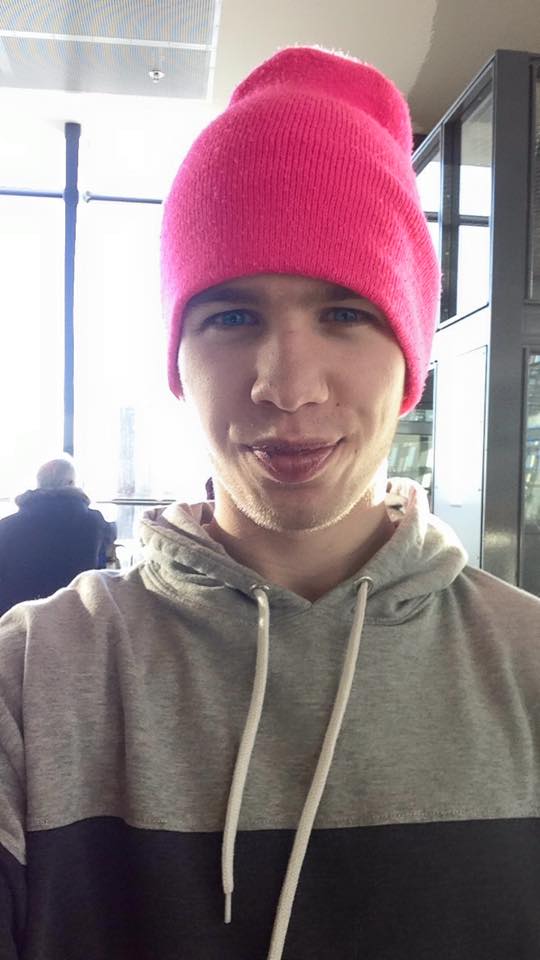
“I think it would help a great deal if the coaches got education on queer issues. Because if a coach isn’t prejudiced against queer athletes then his team isn’t either. That’s a fact,” says Jón Ágúst, who wants to make queer education part of the coaching education. “That way everyone would have to go through it in order to become a coach, and later the coaches could educate members of their own teams on queer issues. It would become routine.”
So you think that coaches can really influence athletes/the team that much?
“Yeah, I mean teachers have to be able to tackle bullying, but it’s even more necessary for coaches to learn that since the kids look up to them. Some kids almost perceive them as gods. Especially if the coach is a former player himself – like Ólafur Stefánsson. After he came back the handball division at Valur sports club has simply exploded, because he is a god to the kids.”
Jón Ágúst says that on the other hand, it can be devestating if you’re a queer athlete and your coach is unsympathetic to queer issues. “I remember times when my team mates made prejudiced remarks or told gay jokes and the coaches did absolutely nothing. They just ignored it, like it was normal for the boys to behave that way. There was even this one coach who laughed at the jokes and participated in the whole thing.”
Wait – did the team and the coaches know that you’re queer?
“Yeah, it was common knowledge that I’m queer. It would have been far worse for me if I was gay, because in sports in Iceland most of the prejudice against queers is against gay men.”
So they knew and still they kept making inappropriate remarks and the coaches did nothing to stop it?
“No, and I went to those who were in charge and I complained about that coach in particular, the one who grinned and laughed at the gay jokes. The response that I got was that he was simply the coach, whether I liked it or not and that was that. End of story.”
“I know guys who were really good at sports … but left clubs because they were bullied for being gay.”
Jón Ágúst says that was one of the reasons he decided to leave the club – two years ago. “I just felt really really uncomfortable there given the circumstances, especially around that guy, the coach.”
Asked if he was the only one who left the club Jón Ágúst admits that there were others who also dropped out, partly because of that same coach. “And then I also know several guys who were really good at sports, who had a lot of potential, but left other clubs because they were bullied for being gay. Some of them feel so bad about what happened, so ashamed, that they don’t want to talk about it. It’s just to hard for them.”
Jón Ágúst says that if things don’t change for the better then more and more promising athletes will quit sports. He has tried to help improve the situation himself by giving lectures on prejudice with Jafningjafræðslan (a peer-to peer education program) at schools and sport clubs and at The Icelandic Boy and Girl Scout Association and says that it’s made a world of difference.
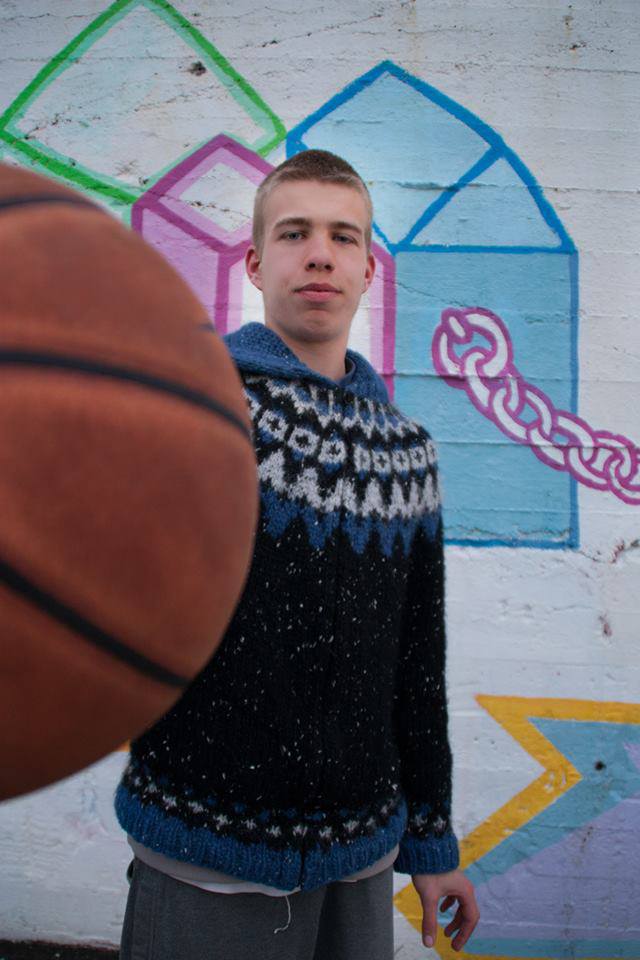
“However it’s immensely time-consuming and frustrating to have to explain things from scratch almost everywhere we go. It would help a lot if some groundwork had been done, say if coaches had already discussed things a bit with the kids. But I don’t see that happening unless ÍSÍ steps in and takes an active stand against prejudice, discrimination and bullying,” he says and adds that until it does, ÍSÍ will keep loosing promising athletes.
And you think educating the coaches on queer issues would help prevent that? “Yes. And not only on queer issues, but also on equality and prejudice in general and issues related to immigrants, people of other faiths than Christianity and so on.”
Finally asked if he ever misses playing handball, Jón Ágúst takes a pause before answering. “Well, I’m currently trying to focus on running, badminton and cycling,” he says. “However, I’ve spent more than half of my live playing handball, so yeah it would be great to get back into the game.
But the idea of joining another club is stressful because being accepted by a new team, by a group of established friends, can be hard and on top of that there’s always the frightening possibility that you’ll be met with prejudice. Based on my experience, I’d really have to think things through before making that decision.”
Main photo: Nordic photos/Getty Images

